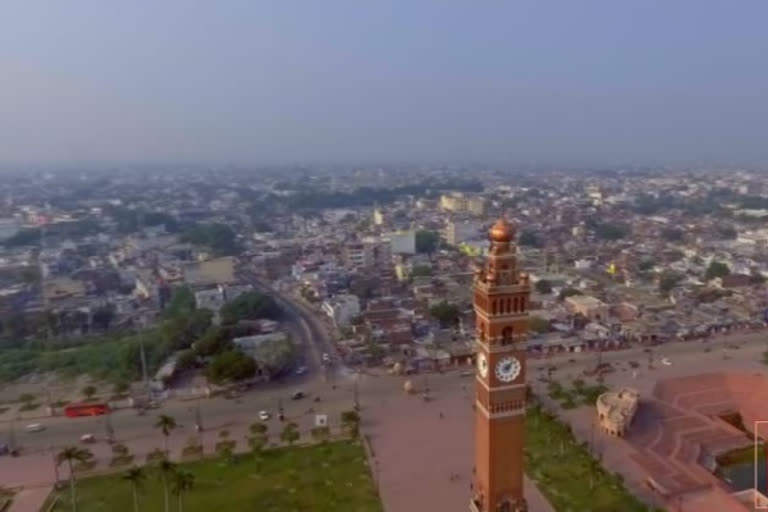Lucknow (Uttar Pradesh): Lucknow, the city of nawabs is famous for many historical buildings and among them is the Hussainabad clock tower, the tallest in India.
This amazing heritage of Lucknow mesmerizes everyone with its architectural beauty.
The clock tower is located adjacent to the famous Rumi Darwaza, Bada Imambada and Teele Wali Masjid.
Constructed between 1882 and 1887 by Hussainabad Trust to mark the arrival of Sir George Couper, the first lieutenant governor of United Province of Avadh, the masterpiece stands tallest among the heritage architects in Lucknow and was built at a cost of Rs. 1.75 lakhs
Those who see it are filled with wonder how such a tall building would have been built in the absence of resources a hundred and fifty years ago.
Amidst the Nawabi heritage, the British had built, historians say that this clock tower is considered to be the best specimen of British architectural art.
This unique building made of bricks and lime was built under the supervision of Engineer Frederick Williams Stevens and the clock in this clock tower was built by Britain's JW Besson Company and there were only three such watches in the world.
Also read: Bathinda's Qila Mubarak, a majestic sight of historic significance
Even today it is considered to be the tallest clock in the country. Six feet long and three feet wide, each gear of this watch or machine is of fifty-fifty kilos and it was made from brass and gunmetal.
British historians wanted to build a unique building in the fort of the Nawabs, the British historians say that the place where this clock tower has been built is located among the Imambaras built by the Nawabs.
The British wanted them to build a new building from the heritage of the Nawabs and this clock tower was the result of this.
However, the British did not spend a single penny on it. He took all the money from the Hussainabad Trust.
After running continuously for over a hundred years, in 1984, the watch stopped working. From then until 2010, the clock remained in a closed state. The local administration proposed to replace it with an electric watch.
However, an engineer after spending about 18 lakh rupees along with some people, took the initiative to correct the watch.
On 13 April 2010, they began working and were able to make the defunct clock functional in 2013 after a silence of 27 long years.



